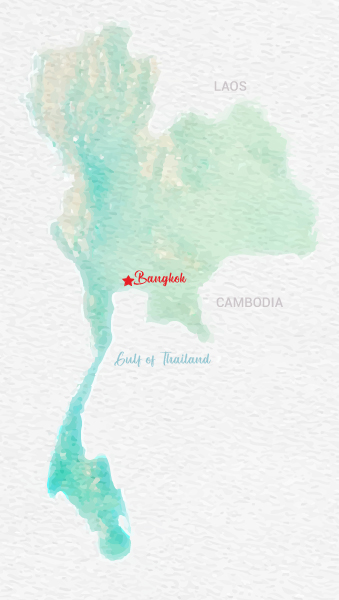
Background information
Country: Kingdom of Thailand

International airports:
Bangkok (BKK), Phuket (HKT), Chiang Mai (CNX)
Land transport: train, bus, taxi
Shipping: ferry, cruise ship
Adventure activities: trekking, rafting, canyoning, cycling, scuba diving, big game fishing…
Luxury activities: spa, golf, shopping, gastronomy, hot air balloon flight…
If you plan to stay longer than 30 days in Thailand, you must apply for an e-visa. It is obtained online by paying . 300 baht (about 50 euros):
Thai Immigration Office
No vaccine is required to enter Thailand. However, Thai authorities require that travellers aged 9 months and over from a country at risk of yellow fever transmission present a yellow fever vaccination certificate. In addition, it is recommended to be vaccinated against typhoid fever, rabies and hepatitis A.
Tap water in Thailand is treated by local authorities, but the distribution system is often degraded, resulting in water contamination by bacteria. It is therefore highly recommended not to drink tap water in Thailand, even in large cities.
Thailand is a safe country, but it is important to remain vigilant, especially in large cities (risks of pick pocketing).
Thailand has a tropical climate, with dry seasons and distinct rainy seasons. The best time to visit Thailand is during the dry season, which runs from November to February. During this period, temperatures are pleasant and rainfall is rare.
If you want to visit popular sights such as the temples of Bangkok or the beaches of Phuket, the dry season is the best time. Crowds are smaller and weather conditions are more conducive to outdoor activities.
During the rainy season, which runs from May to October, you can visit the less touristy regions of Thailand, such as the north of the country or the islands of the Gulf of Thailand.




